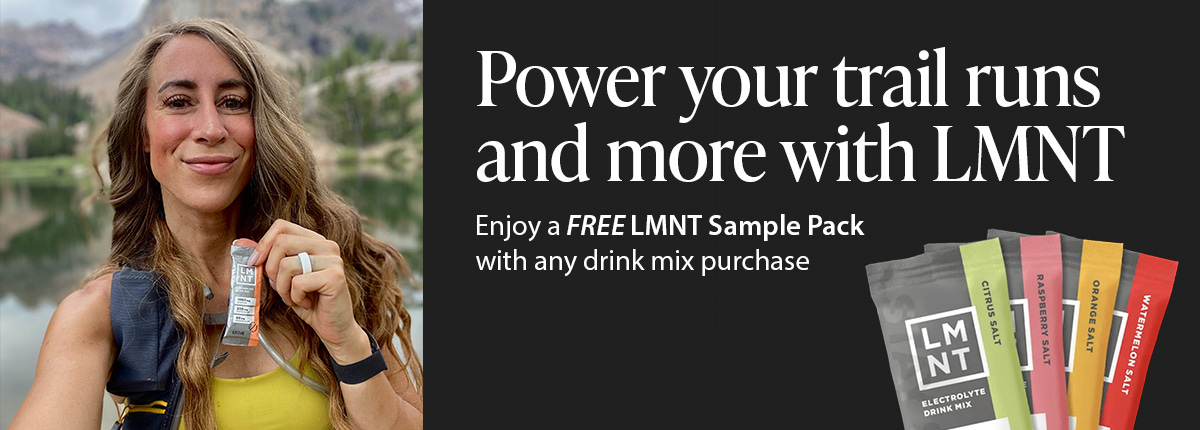This question is MAGICAL
Say this when you're dying to offer advice, but they didn't ask (and you respect boundaries)
This edition is sponsored by LMNT Electrolytes. Fall is my favorite season for trail running and hiking, and you still need electrolytes when it’s chilly! In fact, you may need them even more. Exercising in the cold still makes you sweat, but that sweat evaporates faster, which makes you feel less sweaty. Also, you breathe out more moisture in cold air, which can impact hydration and electrolyte levels. Stock up LMNT for your fall activities, and get a free 8-pack sampler every time you use my link. (←Bookmark it!)
I’m a fixer. If you tell me about a problem, my immediate instinct is to offer alternatives, action items, and solutions. I’ve had to coach myself to pause, call in empathy, and ask, “What do you need from me?”
Also, if they just want me to listen, I get itchy. I am a person of action. If I have a problem, I’m immediately throwing everything and the kitchen sink at it. Sure, I allow space to feel the way I feel, but that phase is brief. I’m desperate to get into “let’s solve this” mode.
I am a very good problem-solver, but not everyone wants a solve. Sometimes you need someone to empathize, to affirm, to let you get it all out even though you know you’re being ridiculous. I have become good at that as well. It didn’t come naturally (or easily), but I have learned how to be an active listener, empathize without making it about me, and be supportive in whatever way that person needs.
And also, I’ve found a loophole which both satisfies their need for an active listener and lets me subtly slide them towards a problem-solving mindset. I realize this sounds nefarious. In practice, however, it’s highly effective, and always welcomed. (Seriously—nobody has ever called me out for asking this question. Most of the time, in fact, people appreciate it.)
“How’s that been working for you?”
Such a simple question, but it’s packed with nuance and can be easily altered to suit the conversation.
For the friend who keeps breaking up and getting back together with their boyfriend: “I know it’s complicated. Also, I say this with love… how’s this pattern been working out for you?”
For the sister who keeps agreeing to host family gatherings, even though it’s a huge imposition and nobody ever helps: “They expect you to host Thanksgiving again? Before you agree, how’s that been working out for you?”
For the employee who keeps moving up deadlines, leaving their team burned out and resentful: “You told the team to get this done in two weeks, but they’re telling you they need four. How has cutting corners worked for morale or the finished product in the past?”
For the daughter who needs her husband to do more around the house: “You’ve had the same conversation with him a few times now. How’s that approach been working out?”
For the friend who keeps avoiding conflict until they explode with resentment:
“You’re tempted to let it slide again. I get it—it’s uncomfortable to have those conversations. But how has letting it slide worked out for you?”
Obviously, context matters. I’d never use this tactic with someone talking about their trauma or grief. I’d also be cautious using it with someone I didn’t know well, because with the wrong tone or placement, it can come off as sarcastic or dismissive. (Where appropriate, I’d drop this towards the end of a conversation, so the person feels heard and validated first.)
In the right context, however, this question can provoke thoughtful introspection, provide a prompt to expand on their feelings, and even lighten the mood. I’ve dropped a well-timed, “Cool, so how’s that been working out for you again?” and received a laughing, “FINE, I know. I really have to say no this time.”
This question functions as active listening, but (if they’re receptive) can also move them from contemplation to preparation. You’re not technically giving advice! But you are suggesting that additional reflection could help them unpack how they feel—and maybe even where they want to go from here.
Also, “How’s that been working out for you?” is excellent for self-reflection. In fact, I ask myself this all the time. I always know the answer before I ask: “It has not, in fact, been working out for me.” Still, it’s a gentle way of acknowledging the reality of my situation, and moving me towards a solution.
If I were to ask you, “How’s that been working out for you?” what’s the first thing that comes to mind? You don’t have to share it in comments, but feel free to use it to prompt self-reflection—and maybe even action, if you’re ready.





I’ve probably told you this before, but when I was growing up, early on in middle school we started having to write bigger assignments. My mother is an English teacher. I would bring my papers to her and immediately get upset because she would go into editor mode. Many, many tears were shed by yours truly. It took a few years to finally get to a shorthand where she would ask, “Do you want feedback or do you want me to tell you it’s good?” Knowing I had a choice of whether to take the feedback or not did actually make it easier to get the feedback.
I might have to think of a slightly different version of what you’re suggesting but still keeping it an open question rather than a yes/no situation. I feel like my Sarcasm Genes would be immediately activated and my face would betray any sort of sincerity in the question. 😬 “Soooo, how’s THAT working out for you?” 😏
🤐